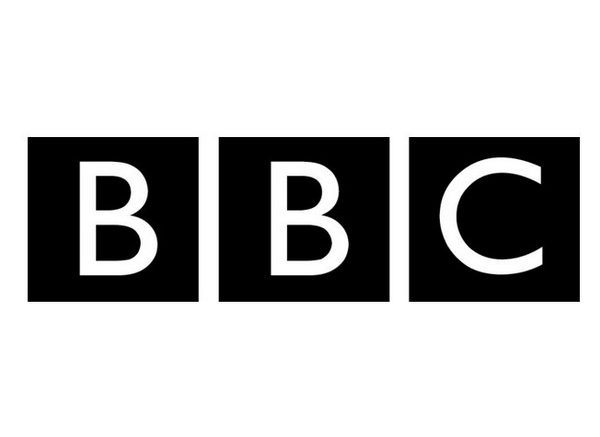The BBC has done some brilliant things in its past. I look back at what the corporation achieved over the years and I have nothing but praise for those things. After all would a commercial broadcaster take a punt on something like I Claudius or Monty Python or Til Death Us Do Part or put on plays and drama that challenged both the mind and preconceptions, without some guarantee of a good fiscal return? I think not.
But that was then, when the BBC was not just the go to national public broadcaster with an enviable reputation and which in the sixties overtook ITV in terms of audience share and when the BBC was considerably more trusted than it is now. The days when you could switch on your television or your radio and be assured that you were getting relatively impartial information from the BBC are long gone. Whilst total impartiality is a complete impossibility as we all have our biases, those of us who listened, during the Cold War to the output of various shortwave radio stations found that the BBC was the least dishonest. I listened to Voice of America, Radio Moscow and the BBC, in order to get a full spectrum of viewpoint and I could easily discern that the BBC, whilst being a Western broadcaster, was unafraid to broadcast news that was unflattering to both the East and the West, something neither VoA nor the stations in the Soviet bloc, seemed to do. Neither the shortwave stations of America nor the Soviet Union washed their dirty linen in public, the BBC on the other hand did, to its credit.
The BBC has lost much of the reputation for relative impartiality that it once had. It was never completely impartial as can be seen from its coverage of contentious issues such as Ulster, the Miners Strike and immigration, but in recent decades, especially since the Labour Party victory in 1997, it has become even less impartial. The BBC whilst not toeing the government line as it did in its 1970’s coverage of the Ulster Troubles or in the 80’s regarding the Miners Strike where they did not actively report on stuff they should have done, such as outrageous police brutality to strikers, still views the world through a political lens. There is a ‘BBC view’ on issues and this view is now very much at odds with many Britons. It seems that the BBC lens is showing less of the country to itself than it should be.
The BBC like so many other public sector organisations has taken on an overt liberal/left character and refuses to recognise that other points of view exist. The BBC now no longer reflects the nation but is actively involved in imposing the BBC view of the world on the nation. In my view a public sector or national broadcaster should reflect the whole country, both its good parts and its bad parts and should allow different voices to be heard so that we the public can examine these voices and decide for ourselves whether they are talking sense or talking rubbish. The BBC is not doing this. It is dishing up an almost complete diet of the concerns of the London-centric middle class left along with ethnic and sexual minorities and failing to represent everyone else. Do I believe that there middle class, minority ethnic and sexuality voices should not be heard, of course not, of course they should be heard. The problem is that the BBC gives us only these voices at the exclusion of all else.
A recent article in The Times of which an excerpt was published by Lockdown Sceptics, appears to confirm my view that the BBC is not representing the country as a whole. The article, based on a report by Ofcom, the broadcasting regulator, shows that trust in the BBC is dropping like a stone. It appears that the wealthy and the various minorities like and trust the BBC but outside of those groups trust is dropping.
Here’s the excerpt of the Times report from Lockdown Sceptics, the rest of the article is behind the Times paywall. As is usual policy for this blog the original text of the article is in italics whereas my comments are in plain text.
The results are understood to chime with the unpublished research recently conducted by the BBC which found that residents of well-off and diverse neighbourhoods held the broadcaster in higher esteem than people from poorer and less diverse communities.
Maybe that is because the BBC is serving some communities better than others?
The findings also tally with an Ofcom report in November which said that the BBC’s bedrock older middle-class audience was going off it. The report added that it was seen as the least impartial public service broadcaster, below ITV, Channel 4, Sky and Channel 5. Fifty-four per cent of adults believe that it provides impartial news.
This older, hard working and achieving middle class audience was crucial to the BBC as it was the only really dynamic and engaged part of its audience because much of the younger generation have abandoned broadcast TV and are a prime audience for streaming services. It is telling that the BBC is now viewed as the least impartial broadcaster behind outlets that once were believed to be less impartial than the BBC. Whereas once Sky and ITV and others were thought to be influenced by outside and commercial factors that impinged on their impartiality and therefore distrusted, that distrust is now firmly aimed at the BBC.
The new research, by YouGov, found 44% of the public thought that the BBC represented their values badly. This was particularly true of older people, with 48% saying that the BBC did not adequately represent their views. In the north of England it was 51% and Scotland 47%. Among those who voted for Brexit, 58% were unhappy with the overall stance of the corporation.
Let’s look at these numbers and what they represent shall we? 44% of the general population considering that the BBC doesn’t represent them is bad news for the BBC. Although its a minority it’s a damned big one and one the BBC should worry about. The number rises among older Britons who feel that the BBC has nothing for them. For this cohort it is particularly telling as this is the generation that would have grown up with the BBC and the subtle message that the BBC was both impartial and represented the nation. It’s also worrying for the BBC that they’ve seemingly lost both the North of England and Scotland, the 51% and 47% respectively figures regarding lack of representation are a big failure for the BBC. I’m not at all surprised to see such a low opinion of the BBC from Brexiteers as we all saw how biased the BBC was during the aftermath of the Referendum.
Asked how their views of the BBC had changed over the year only 4% said that its values had become more like theirs while 33% said it had become less like theirs. Older male viewers outside London and the southeast were the most likely to be dissatisfied with the BBC’s perceived values.
Ouch! These numbers represent a huge drop in confidence in the BBC and also a rejection of the BBC’s increasingly overt left wing woke agenda.
The findings come before a government review on public sector broadcasting. Boris Johnson has made little secret of his desire to reform the BBC amid speculation that the licence fee in its present form could be scrapped.
The BBC is indeed in urgent need of reform. But I don’t believe that such reform can come about as long as the TV licence fee exists. I once believed that having all TV viewers pay for a channel that was without commercial pressures and was a national resource was a good thing. Having seen how the BBC has declined and taken on much more of a left wing bias and become an organisation dominated by monothought, I find I can no longer hold such a view. The TV licence must die.
Some of the proposed alternatives to fund the BBC, such as funding the BBC from direct taxation either local or national, also have the moral hazard of failing to provide an incentive for the BBC to reform. I have had to come to the somewhat reluctant conclusion that the only way to stop the BBC only representing Tracy the Tranny or Roger the Race Baiter, is for the BBC to be subjected to the full commercial discipline of becoming a wholly or mostly subscription channel. Only then, when the BBC is held to account by being beholden to an audience that chooses to watch the BBC, might the BBC become more relevant to the whole nation and representative of it.






Thanks for spreading article. I found Ofcom’s earlier report more damaging to BBC:
‘BBC less trusted than Sky, ITV, C4 and C5″
When will out of touch MPs decriminalise not having a BBC Licence
This should be BBC’s death knell
youtube.com/watch?v=GQTAILC-vSM
It was indeed a damning report from Ofcom. I don’t believe that the TV licence should be decriminalised as that will just turn it into a civil debt where non payment will damage people’s credit rating and give a big payday to thuggish bailiffs. The licence fee needs to go in its entirety and the BBC become a subscription service. Let’s see then just how many people would be willing to shell out their hard earned cash to watch the bent and biased cack that the BBC put out?
Good point on bailiffs etc. Solution: make a non credit rating debt, after all if not ‘using’ why should it be payable?
Subscription or commercial (adverts) is the way to go. Commercial works as no viewers = no ads.
My preferred solution is scrap licence, privatise all but BBC1, R4 and World-service
BBC – Dan Snow is in full remoaner meltdown – WWIII imminent because UK has left EU. Err, Dan you do know Germany has few working tanks, only 4 manned combat ready & airworthy Typhoon aircraft and their soldiers attend NATO exercises armed with broomsticks not guns
For me it’s got to be subscription, maybe introduced progressively over the course of a year. Subscription avoids much of what has made overseas commercial supported TV bad such as catering for the lowest common denominator or intrusive product placement in programmes. With subscription people have to make an active choice to watch the BBC. That would make it much more responsive to the needs of viewers rather than advertisers.
From what I’ve heard of R1 and R4 recently, the bias and overt wokeness is just as bad there as on the TV channels. As for the World Service I believe that this should go back to being funded by the FCO and not as it is now, funded from the licence fee. Since the BBC funded the world service from the licence fee it has closed relays, language services and given up frequency space, such as 648KHz, for cost reasons.
Yes the Germans are not the military colossus that they once were. I seem to recall hearing a story from Afghanistan where more German military personnel were being medically discharged and shipped out of the country because they were overweight than because of battlefield injuries.
Yes, R4 is Left woke pit – I no longer listen. World Service same, plus celebratory interviews/lessons with illegal immigrates on how to ‘beat the system’ and sneak in, claim asylum
Put WS back with FCO, make BBC1 and R4 PBS, sell the rest inc C4
Have you seen the sh1t on BBC3 to indoctrinate the young?
https://www.youtube.com/c/BBCThree/videos